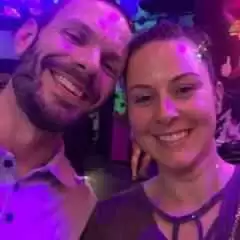-
Welcome to Celiac.com!
You have found your celiac tribe! Join us and ask questions in our forum, share your story, and connect with others.
-
Celiac.com Sponsor (A1):
Celiac.com Sponsor (A1-M):
-
Get Celiac.com Updates:Support Our Content
Just Diagnosed....not Really Sure What To Do Now.
-
Get Celiac.com Updates:Support Celiac.com:
-
Celiac.com Sponsor (A17):
Celiac.com Sponsor (A17):
Celiac.com Sponsors (A17-M):
-
Recent Activity
-
- asaT replied to Scott Adams's topic in Post Diagnosis, Recovery & Treatment of Celiac Disease48
Supplements for those Diagnosed with Celiac Disease
plant sources of calcium, such as spinach, have calcium bound to oxalates, which is not good. best source of calcium is unfortunately dairy, do you tolerate dairy? fermented dairy like kefir is good and or a little hard cheese. i do eat dairy, i can only take so much dietary restriction and gluten is hard enough! but i guess some people do have bad reactions... -
- asaT replied to Scott Adams's topic in Post Diagnosis, Recovery & Treatment of Celiac Disease48
Supplements for those Diagnosed with Celiac Disease
i take b12, folate, b2, b6, glycine, Nac, zinc, vk2 mk4, magnesium, coq10, pqq, tmg, creatine, omega 3, molybdnem (sp) and just started vit d. quite a list i know. I have high homocysteine (last checked it was 19, but is always high and i finally decided to do something about it) and very low vitamin d, 10. have been opposed to this supp in the past... -
- nanny marley replied to hjayne19's topic in Post Diagnosis, Recovery & Treatment of Celiac Disease20
Insomnia help
Great advise there I agree with the aniexty part, and the aura migraine has I suffer both, I've also read some great books that have helped I'm going too look the one you mentioned up too thankyou for that, I find a camomile tea just a small one and a gentle wind down before bed has helped me too, I suffer from restless leg syndrome and nerve pain hence I... -
- David Blake commented on Scott Adams's article in Product Labeling Regulations1
FDA Moves to Improve Gluten Labeling—What It Means for People With Celiac Disease
My question I have proposed to the FDA through their website is why Prescription and OTC drug manufacturers are not required to list what binding ingredients were used to bine the drug? They list this on Capsules which are made of cellulose but not on pills? As it stands I or my pharmacist must contact the manufacturer to find out and my list is long from...- celiac disease
- fda
- (and 8 more)
-
- nanny marley replied to wellthatsfun's topic in Post Diagnosis, Recovery & Treatment of Celiac Disease4
nothing has changed
I agree there I've tryed this myself to prove I can't eat gluten or lactose and it sets me back for about a month till I have to go back to being very strict to settle again
-




Recommended Posts
Archived
This topic is now archived and is closed to further replies.